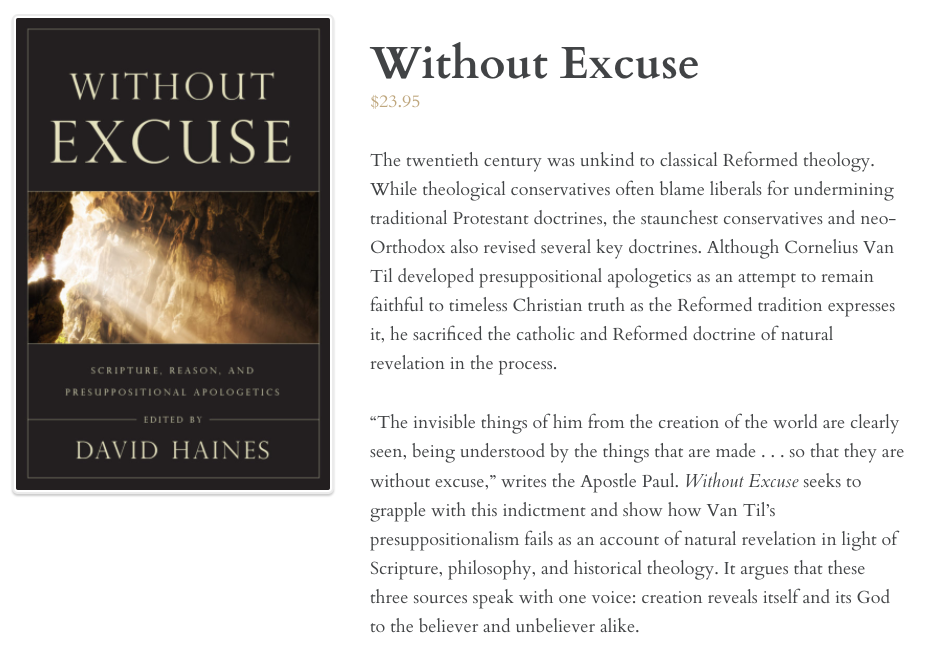Back when Fesko’s book came out a few years ago I read the early statement out of Westminster (which Van Til contributed to heavily) on the issue of general revelation, natural theology, etc. 15 years ago when I was teaching apologetics at Golden Gate I had my students read the Sproul/Gerstner/Lindsley work on classical apologetics. I used it to point out how even our heroes can be so focused upon their viewpoints that they just cannot “hear” the other side and represent it accurately.
And now we have this new book (seems to be becoming an annual thing). And what do they all say? Van Til sacrificed “natural theology,” “natural law,” etc. and etc. Of course, he did no such thing. He affirmed general revelation *gets through.* He simply accepted the reality that it *gets suppressed* as well. But he affirmed it, clearly, and unambiguously. It is one thing for non-Reformed to miss this, since they attach such weight to autonomy and man’s inherent abilities outside of grace. But I just do not understand how Reformed men can be so double-minded on the issue. I simply have to shake my head when the advert for the book comes right out and says Van Til “sacrificed the catholic and Reformed doctrine of natural revelation” and then concludes that the truth is “creation reveals itself and its God to the believer and unbeliever alike.” Of course it does. With great clarity. So much clarity that the unbeliever is *without excuse.* So why does one suppress that knowledge, and the other revel in it? Grace. Election. Renewal. A new mind. The universal suppression has to be removed, and is, for the elect, by the Spirit, in regeneration. There really is no excuse for this. You can complain about Van Til’s English all you want. Bahnsen interpreted him clearly enough. But, here we go again….




